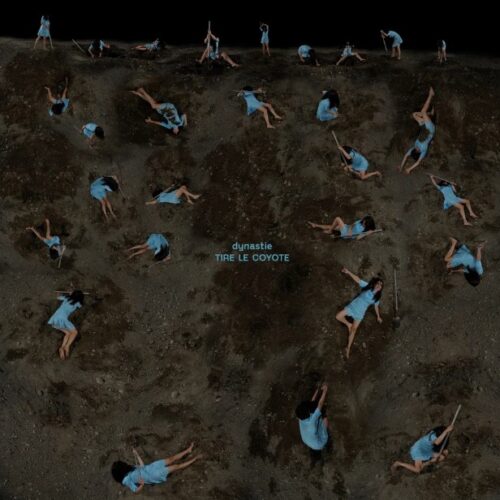Benoît Pinette has not rectified the situation, but has certainly found new angles of attack. The coyote had better watch out!
With his bassist Marc-André Landry, the singer-songwriter had, against all odds, created electronic, rather ambient music under the banner Demain déluge. Nice, we remarked a few weeks ago in Rouyn-Noranda, listening to this material, which was especially useful for the creation of the album in question. And so begins Dynastie, which is anything but a soap opera about the reproduction of the rich at the top of the social pyramid.
Let’s not be fooled into thinking that Benoît Pinette has relegated to oblivion his Americana inclinations (country folk, country rock, etc.) and his countertenor voice, which cohabit very well with ambient embellishments, but also with quasi-grunge thrusts or even certain Tex-Mex flavors.
Here we have a pleasing example of an artist keen to renew his offering and thus evolve, shaking up his audience just a tad, despite the latent immobility of all fan clubs.
It can’t be said often enough that a great song is original not because of its melody or harmonic progression, but because of the sound environment it suggests, the text it carries and the singular voice that is its main vehicle. Needless to say, Benoît Pinette has perfectly understood the stakes involved in his own longevity.
With the addition of new instruments, analog synthesizers and other gizmos, Tire le Coyote perpetuates his songwriting relevance, while continuing the poetic expression of his reflections, declarations, musings and meditations on “the beauty that crosses you from edge to edge”, or on the extreme fragility of human relationships, or on the precariousness of our earthly future. We can imagine the narrator taking a side road and “driving there to inhabit the distance”, then looking for “a parking space” as if to stop time, find refuge, live his singularity, “follow his plan”, even if “I know that you know that we don’t hold on to much”.
As the late Christian Mistral used to say, “c’est en écrivant qu’on devient écriveron” (“it’s in writing that you become a writer”), and this principle undoubtedly applies to Benoît Pinette, who today knows how to spare his effects and bring out the cream of his best rhymes in complete coherence.
























